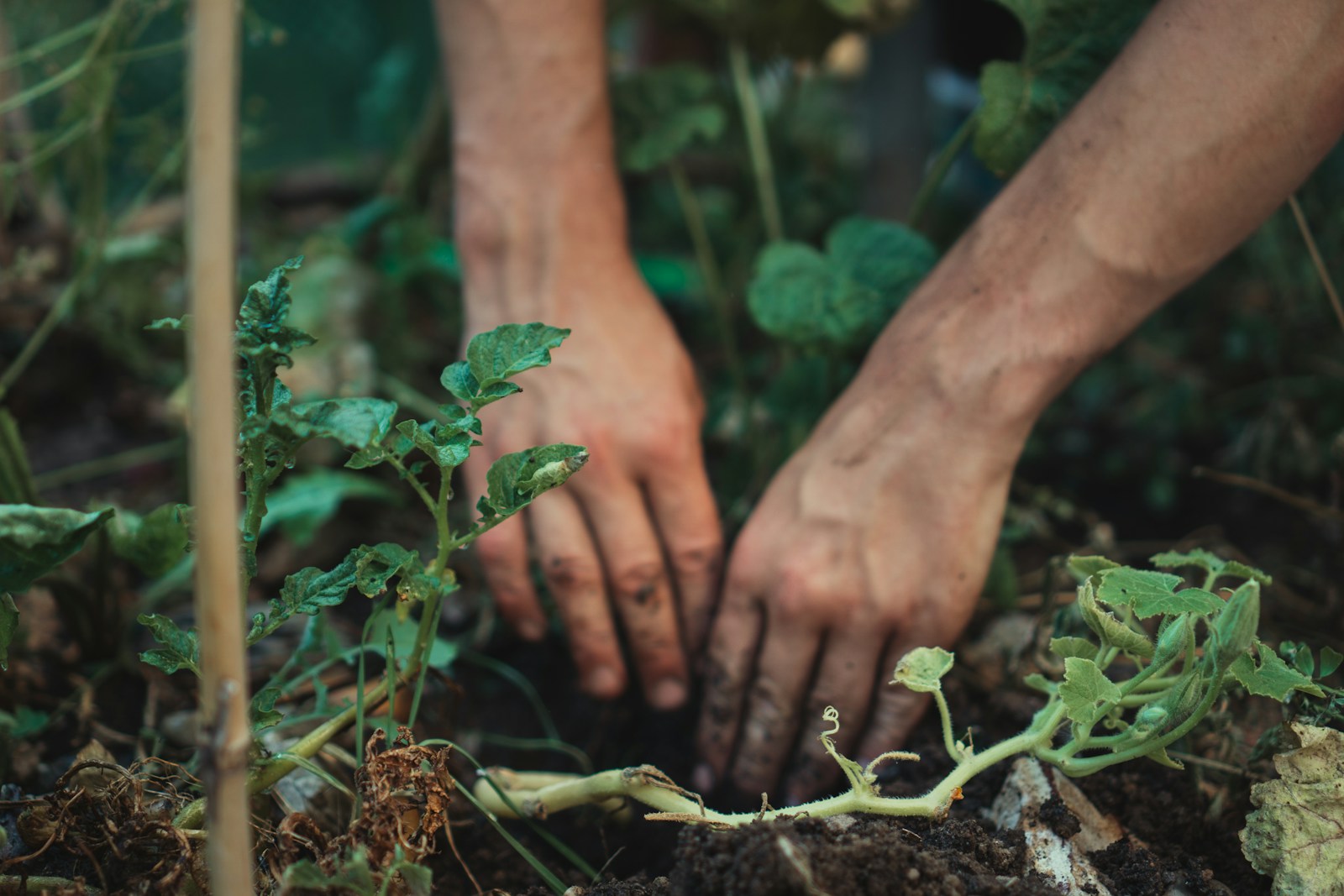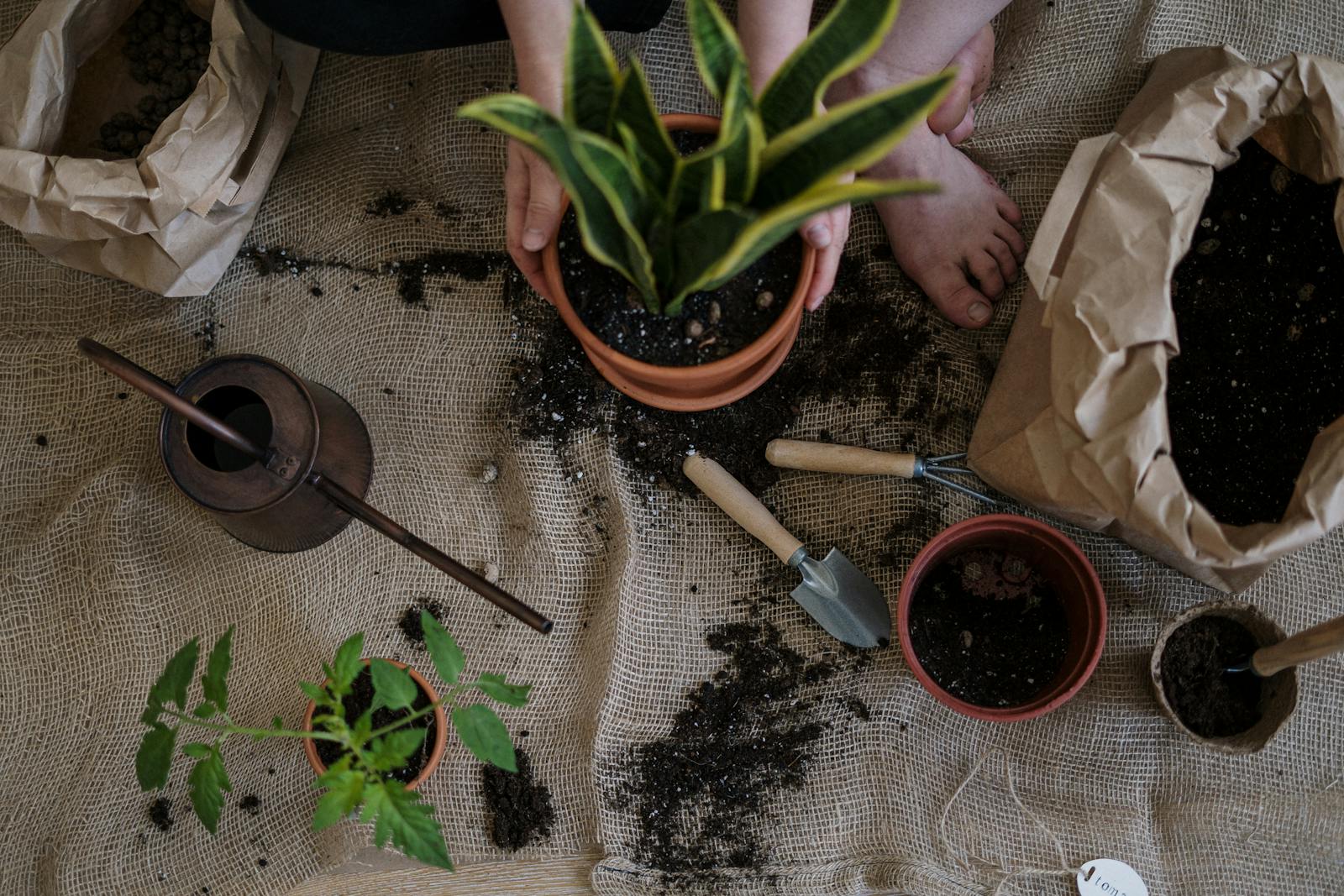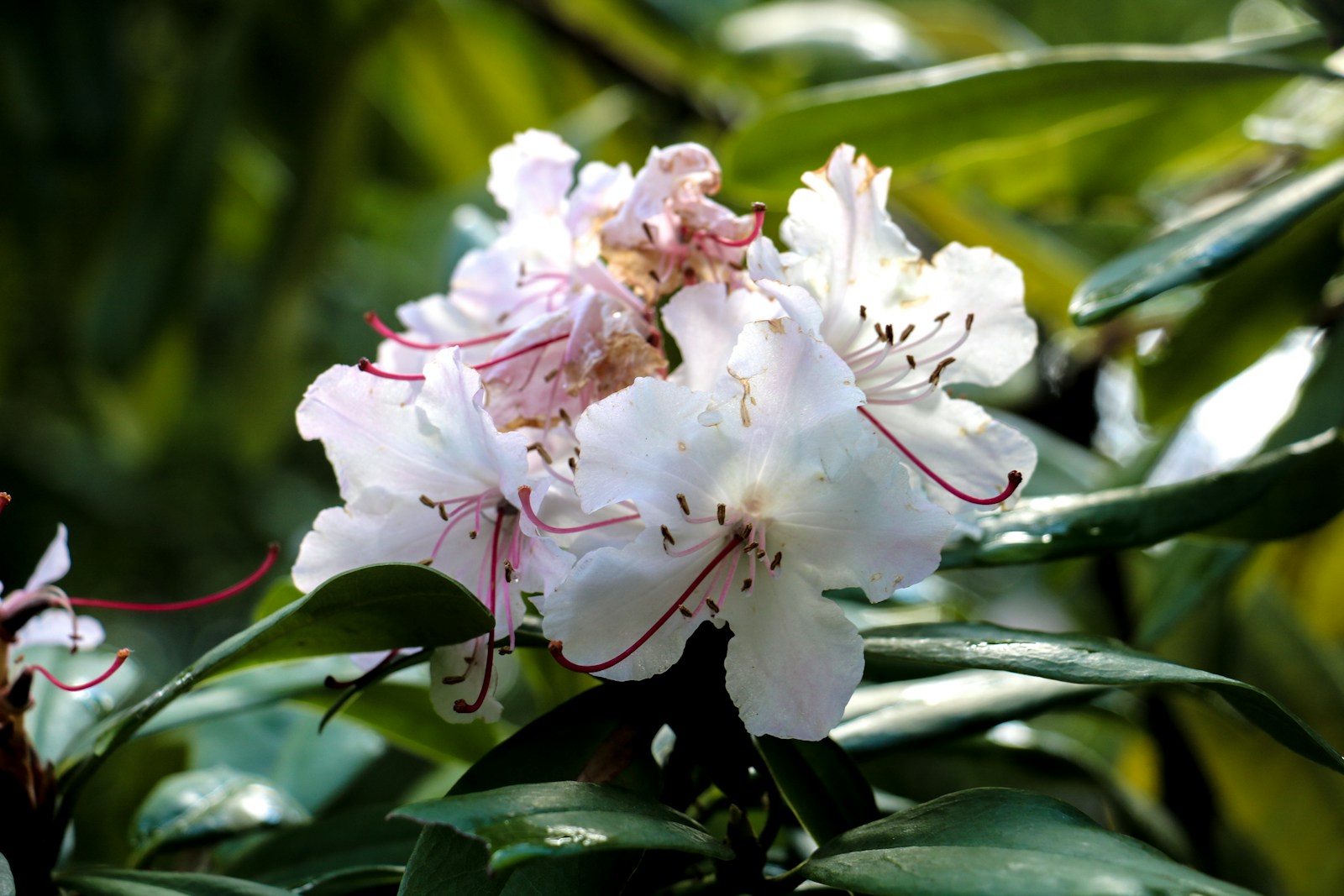Organic Gardening 101: Natural Ways to Grow Healthy Plants Without Chemicals
What Is Organic Gardening?
Organic gardening is a method of growing plants without synthetic chemicals, focusing instead on natural systems, biodiversity, and soil health. It prioritizes practices that build living, nutrient-rich soil and support beneficial organisms, creating a thriving ecosystem above and below ground. One of the key aspects of organic gardening is accessibility, making it suitable even for those new to gardening. By employing organic gardening methods for beginners, individuals can easily learn the basics of cultivating their own food while promoting ecological balance. This approach not only fosters sustainable practices but also cultivates a deeper appreciation for nature and its intricate connections.
Instead of relying on synthetic fertilizers or pesticides, organic gardening uses compost, cover crops, crop rotation, and natural pest control. This sustainable approach nurtures both plants and the environment, promoting cleaner air, healthier food, and greater resilience against climate change.
Whether you’re growing food, flowers, or herbs, organic gardening is a rewarding and responsible way to cultivate nature at home.
Build Healthy Soil from the Ground Up
Healthy soil is the cornerstone of organic gardening. Unlike conventional methods that feed plants directly, organic gardening feeds the soil to support plants naturally. Begin by testing your soil’s pH and nutrient levels, then amend with compost, aged manure, and organic matter like leaf mold or worm castings.
Soil structure is just as important as nutrition. Use mulch and cover crops to protect against erosion and improve water retention. Rotate crops annually to prevent nutrient depletion and break pest cycles. The more life in your soil, the better your plants will grow—without the need for synthetic support.
Start a Compost System at Home
Compost is the lifeblood of organic gardening, providing essential nutrients and improving soil structure naturally. Start by collecting kitchen scraps like fruit peels, coffee grounds, and eggshells, along with yard waste such as leaves and grass clippings. Balance “greens” (nitrogen-rich) with “browns” (carbon-rich) to create a nutrient-dense compost mix.
Turn your compost pile regularly and keep it moist like a wrung-out sponge. Within a few months, you’ll have rich, dark compost ready to enrich your garden beds. Composting not only reduces landfill waste but also feeds your garden in a sustainable, eco-friendly way.
Use Natural Fertilizers and Amendments
Organic gardening avoids synthetic fertilizers, opting instead for natural sources of plant nutrition. Compost, seaweed extract, bone meal, blood meal, fish emulsion, and rock phosphate are all excellent organic amendments. Each supports different stages of plant growth while also building soil health.
Choose amendments based on what your plants need and your soil test results. For example, nitrogen-rich sources help leafy greens, while phosphorus boosts root crops and flowering plants. Apply fertilizers sparingly and always water them in well.
Feeding your garden naturally ensures healthier plants and a more resilient garden over time.
Choose Organic Seeds and Heirloom Varieties
Organic gardening starts with the right seeds. Look for certified organic seeds, which are grown without synthetic treatments or GMOs. Heirloom varieties are also a great choice—they’re open-pollinated, genetically diverse, and often better adapted to local growing conditions.
These seeds preserve biodiversity and tend to produce robust plants with rich flavors and unique traits. Many heirlooms have built-in pest resistance or drought tolerance, making them well-suited to natural gardening practices. By choosing organic and heirloom seeds, you support seed-saving traditions and help maintain a resilient food supply.
Practice Companion Planting for Natural Balance
Companion planting is a fundamental technique in organic gardening that pairs plants to support each other’s growth, repel pests, or enhance flavor. For example, basil improves tomato yield and flavor while repelling whiteflies. Marigolds deter nematodes and aphids near many vegetables, and beans fix nitrogen in the soil for leafy crops like spinach or lettuce.
Companion planting reduces the need for chemical pesticides and promotes biodiversity. Keep incompatible plants apart—like onions and peas—to avoid stunted growth. Thoughtful pairing creates a harmonious, low-maintenance garden that naturally deters pests and increases productivity.
This time-tested strategy enhances your garden’s health without adding synthetic inputs.
Control Pests with Natural Methods
In organic gardening, pest control relies on prevention and natural remedies. Begin by attracting beneficial insects like ladybugs, lacewings, and parasitic wasps. These natural predators help keep pest populations in check. Grow flowers like dill, yarrow, and alyssum nearby to draw them in.
Use physical barriers like row covers, netting, or companion planting to deter insects. For active infestations, apply neem oil, insecticidal soap, or homemade garlic sprays. Rotate crops annually and keep your garden clean to disrupt pest life cycles.
By working with nature, you can protect your plants without relying on harsh, chemical-based pesticides.
Encourage Pollinators and Beneficial Insects
A thriving organic garden depends on pollinators like bees, butterflies, and hummingbirds. These creatures help fertilize your crops, increasing yields and diversity. Plant native wildflowers, herbs, and flowering vegetables to attract and feed pollinators throughout the season.
Avoid synthetic pesticides and herbicides, which can harm helpful insects. Instead, create habitats by adding bee hotels, butterfly puddling stations, and insect-friendly hedgerows. Diverse planting and pesticide-free practices invite nature to become an ally in your garden’s health.
Fostering these vital allies enhances productivity while keeping your garden in ecological balance.
Mulch to Conserve Moisture and Suppress Weeds
Mulching is a key organic gardening strategy that helps maintain soil health, suppress weeds, and reduce watering needs. Use organic mulches like straw, shredded leaves, wood chips, or grass clippings to cover bare soil between and around plants.
Mulch retains moisture by shading the soil, prevents erosion, and provides insulation against temperature swings. As it decomposes, it feeds soil microbes and adds organic matter to improve fertility. Apply a two- to three-inch layer and refresh it as needed throughout the season.
This simple practice supports your plants while minimizing garden maintenance and promoting soil vitality naturally.
Rotate Crops to Prevent Disease and Improve Soil
Crop rotation is an essential element of organic gardening that reduces pest and disease pressure and keeps soil nutrients balanced. Avoid planting the same crop—or crops from the same family—in the same location year after year. This helps break the life cycles of pests and soil-borne diseases.
Rotate heavy feeders like tomatoes with light feeders such as carrots or legumes that enrich the soil with nitrogen. Use a 3- to 4-year rotation cycle for the best results. Plan your beds with diversity and long-term soil health in mind.
Rotation fosters balanced nutrition, boosts yields, and helps your organic garden thrive without synthetic inputs.
Water Wisely to Support Plant Health
Efficient watering is essential in organic gardening. Rather than watering daily, aim for deep, infrequent sessions that encourage strong root development. Early morning is the best time to water, minimizing evaporation and allowing foliage to dry before nightfall—helping prevent fungal diseases.
Use drip irrigation, soaker hoses, or watering cans to deliver water directly to the base of plants. Mulch around your crops to help retain moisture and reduce the frequency of watering. Observe your soil regularly—if it’s dry two inches down, it’s time to water.
Thoughtful watering practices conserve resources and keep your plants thriving naturally.
Use Cover Crops to Enrich the Soil
Cover crops—also known as green manure—are plants grown to protect and enrich soil during off-seasons. In organic gardening, cover crops like clover, vetch, rye, or buckwheat help prevent erosion, suppress weeds, and add organic matter to the soil.
These plants fix nitrogen, improve soil structure, and support microbial life. After their growing period, cut them down and turn them into the soil before planting your main crops. This natural enrichment boosts fertility without synthetic fertilizers and helps maintain long-term garden health.
Adding cover crops to your routine makes your garden more productive and self-sustaining over time.
Eliminate Weeds Without Chemicals
Weed control in organic gardening is about prevention, consistency, and natural suppression—not herbicides. Start by mulching heavily to block light and prevent weed seeds from germinating. Pull weeds early, while they’re small and before they go to seed.
Hand tools like hoes and cultivators make weeding easier, especially between rows. Consider no-till methods to minimize weed seed disturbance in the soil. For stubborn areas, solarization—covering soil with clear plastic—can help kill off weeds with sun heat.
With consistent effort, you can control weeds effectively and safely while keeping your soil and plants chemical-free.
Design for Biodiversity and Balance
One of the core principles of organic gardening is working with nature, not against it. Create a biodiverse garden by mixing flowers, herbs, fruits, and vegetables. This attracts beneficial insects, deters pests, and improves pollination. Diverse plantings also reduce the spread of disease and soil nutrient depletion.
Layer your garden with tall, medium, and groundcover plants to mimic natural ecosystems. Integrate native species for better resilience and to support local wildlife. A garden rich in life is more balanced, beautiful, and self-regulating—reducing the need for intervention and enhancing ecological health.
Stay Patient and Committed to the Process
Organic gardening is a journey, not a quick fix. It takes time to build healthy soil, attract beneficial wildlife, and see the long-term effects of your efforts. Unlike synthetic methods that promise immediate results, organic approaches focus on sustainability, balance, and resilience.
Stay committed to learning from each season—record your successes and failures in a garden journal. Be patient with nature’s pace, and celebrate small victories like the first earthworm in your soil or a ladybug on your tomato plant.
Organic gardening rewards persistence with a thriving, chemical-free garden that nourishes both body and environment.
Frequently Asked Questions
What does organic gardening mean?
Organic gardening refers to cultivating plants without using synthetic fertilizers, pesticides, herbicides, or genetically modified organisms (GMOs). Instead, it relies on natural techniques like composting, crop rotation, companion planting, and the use of organic matter to feed the soil. This method supports biodiversity, improves soil health, and reduces harm to pollinators and the environment. Organic gardening promotes sustainability by working with natural ecosystems, not against them. Whether you’re growing food or flowers, choosing organic practices ensures healthier plants, tastier harvests, and a positive impact on both your local ecosystem and your own well-being.
How do I start an organic garden at home?
Start an organic garden by selecting a sunny location, testing your soil, and enriching it with compost or aged manure. Choose organic or heirloom seeds and plant varieties suited to your region. Use mulch to conserve moisture and suppress weeds, and avoid synthetic chemicals by managing pests naturally with companion planting and beneficial insects. Water wisely with drip irrigation or early morning hand-watering. Maintain a garden journal to track growth and seasonal changes. Begin small and expand gradually as you gain experience. With patience and consistency, you’ll build a vibrant, chemical-free garden from the ground up.
Can I use store-bought compost and soil in organic gardening?
Yes, you can use store-bought compost and soil in organic gardening—as long as they are labeled “organic” and free of synthetic additives. Check the ingredients to ensure they don’t contain chemical fertilizers or pesticides. Organic compost and potting mixes often include natural ingredients like peat moss, coconut coir, perlite, and worm castings. These support healthy microbial life in the soil and provide nutrients over time. If you’re unsure, consult with your local garden center or extension office. Choosing high-quality, organic-certified products ensures your garden stays aligned with organic principles and promotes plant health naturally.
How do I deal with pests organically?
To manage pests organically, start by encouraging beneficial insects like ladybugs and lacewings that prey on common garden pests. Use physical barriers such as row covers and netting to prevent access. Apply safe treatments like neem oil, insecticidal soap, or homemade garlic sprays as needed. Companion planting—like basil with tomatoes or marigolds with beans—can also help deter unwanted bugs. Regularly inspect your plants, remove infested leaves, and keep your garden clean of debris. With consistent care and observation, you can manage pests effectively while protecting pollinators and maintaining a healthy, balanced ecosystem in your organic garden.
Is organic gardening better for the environment?
Yes, organic gardening is better for the environment because it avoids harmful synthetic chemicals that pollute soil, water, and air. It fosters biodiversity by encouraging natural predators and pollinators, supports soil health through composting and crop rotation, and reduces greenhouse gas emissions by minimizing chemical use. Organic practices also help combat erosion, improve water retention, and enhance carbon sequestration in soil. By working with nature instead of against it, organic gardening contributes to more resilient ecosystems and promotes long-term sustainability for both local communities and global environmental health.
© 2025 GardeningandDecor.com. All rights reserved.



